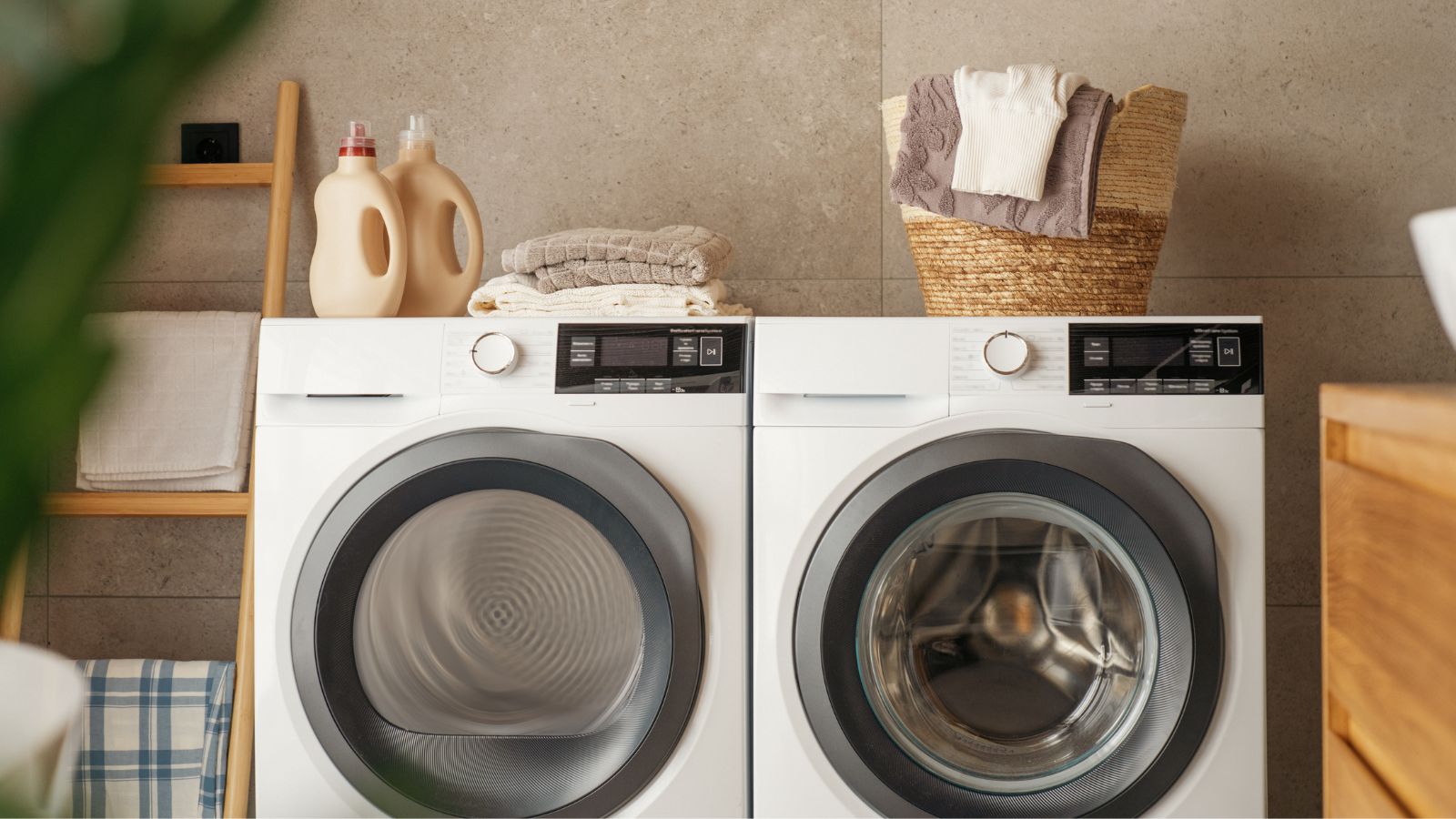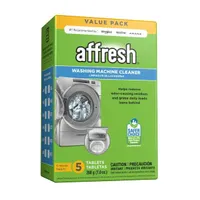This washing machine placement mistake could be damaging your appliance – here's where to put it instead
Although these are common laundry spots, putting your washing machine here could be causing irreparable damage


Design expertise in your inbox – from inspiring decorating ideas and beautiful celebrity homes to practical gardening advice and shopping round-ups.
You are now subscribed
Your newsletter sign-up was successful
Want to add more newsletters?

Twice a week
Homes&Gardens
The ultimate interior design resource from the world's leading experts - discover inspiring decorating ideas, color scheming know-how, garden inspiration and shopping expertise.

Once a week
In The Loop from Next In Design
Members of the Next in Design Circle will receive In the Loop, our weekly email filled with trade news, names to know and spotlight moments. Together we’re building a brighter design future.

Twice a week
Cucina
Whether you’re passionate about hosting exquisite dinners, experimenting with culinary trends, or perfecting your kitchen's design with timeless elegance and innovative functionality, this newsletter is here to inspire
While it is a dream to be able to have a utility room big enough for our washers and dryers, in reality, our options are more limited. So, our washing machines typically find their way into the garage or basement – but is this really the best place to keep them?
These bulky appliances are essential to doing laundry, but experts have suggested that keeping a washing machine in damp, cool spots could be doing more harm than we realize.
Here, they explain why this washing machine placement mistake could be doing irreparable damage, and where is best to store it instead.
Washing machine placement mistake
If you do not have a dedicated laundry room, then the garage or basement is a logical place to keep your washing machine. These spaces, however, are often the dampest and coolest of the rooms in our house and can slowly degrade the components in your washing machine, encourage rust on your machine and the floor around it, and encourage the development of mold on the seals and drum, says Jeniffer Smith, appliance expert and homemaker at Urban Home Corner. This, in turn, can damage or even discolor your clothing.
‘Storing a washing machine in these areas can also make it more difficult to maintain and repair the machine, as these areas are often less accessible than other areas of the home,’ she explains. ‘Overall, it's best to store washing machines in dry, temperature-controlled areas of the home to ensure they stay in good working condition for as long as possible.’

Jeniffer Smith is a homemaker and blogger with Urban Home Corner. A self-taught appliance expert, Jeniffer is now the go-to for organizing and appliance queries on the blog, helping clients find affordable solutions to common home problems.

Cold and dampness are not your only concerns when it comes to storing a washing machine in a basement or garage, adds Becky Decker of GardeningHood, as pests can run rampant in these areas. A range of common household pests and even rodents can gain easy access to these areas, and can quickly chew through cables and pipes used to connect the machine to the mains systems, she explains.
‘It's important to note that washing machines are designed for indoor use only. Placing them in a garage or basement can void any manufacturer warranties or guarantees, leaving you responsible for any repairs or replacements that may be necessary,’ Becky warns.
Design expertise in your inbox – from inspiring decorating ideas and beautiful celebrity homes to practical gardening advice and shopping round-ups.
Where to store your washing machine

So where should you be storing your washing machine to prevent any damage? The ideal place would be a room inside your home connected to heating such as a dedicated laundry or utility room. If you don't have the space, a kitchen or bathroom is your next best bet, says Jeniffer Smith, appliance expert. These rooms likely already have the water connectors and ventilation that you need, she adds, making them a logical choice as well as a practical one.
What’s more, moving your washing machine means you are less likely to dry your clothes in the garage or basement, either because you are forced to also more your tumble dryer, or you relocate your drying rack. Drying clothes in the basement or garage is equally as bad an idea as it slows drying and encourages the growth of mold and mildew on the fibers, leading to musty smells and discoloration.
Affresh Washing Machine Cleaner | Was $15.77, Now $11.14 at Walmart
This washing machine cleaning solution is perfect for musty or moldy washing machines that may have been sat in a dark, damp, or cold spot for long periods of time.
FAQs
Can a washing machine go in a cupboard?
Front-loading washing machines can be fitted into cabinets, but it needs to be a space that is slightly larger than the machine, rather than a perfect fit. Allow a small gap on either side and on top of your washing machine to allow it space to move as it washes your clothes.
Is it bad for a washing machine to sit in storage?
If you are not using your washing machine then it can sit in storage for around four weeks before it will start to deteriorate. Sitting water in the pipes, or exposure to cold or damp conditions will start to deteriorate the components inside leading to irreparable damage and bad odors when you return to it. If you are not planning to use a washing machine for whatever reason, it is a good idea to completely disconnect it from the wall sockets, drain the connector pipe, and clean the inside of the drum to prevent mold growth.
Washing machines can be awkward to find homes for in busy houses, but it is important to keep them in the right conditions to ensure they continue to work as intended for as long as we need them.

Chiana is Homes & Gardens’ kitchen appliances editor. With a lifelong passion for cooking and baking, she grew up experimenting in the kitchen every weekend with her baking-extraordinaire Mom, and has developed a great understanding of how tools and appliances can make or break your ideal relaxing kitchen routine.
